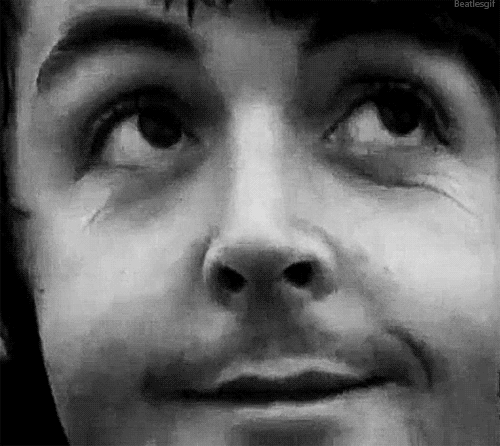Art imitates life, life imitates art, all the world’s a stage and all the men and women merely players, in a play, of a song, of a song of a play.

In 1958, the play ‘A Taste Of Honey’ premiered on a small fringe theatre in London. Polite theatre going society, still clambering for a return to pre-war values amidst the rubble left behind by the Luftwaffe, baulked, huffed, puffed, swore blind that the kids of today were out of control and boggled their minds at the shame of what they saw…or likely read about.
The netherworld of post-war ‘normal’ that was neither the status quo veterans had fought for nor yet the youth revolution that was still five years away from really catching, hadn’t treated its inhabitants kindly. Rationing had lingered beyond reason, major cities were still in ruins and boys out of school looked in the mirror and saw their ravaged fathers staring back at them.

What was victorious Britain? Britain didn’t know. Empire had failed their latest generation of heroes, the industrial ‘evolution’ had cemented working class aspirations and kept everyone firmly in their place - don’t mention the war! Yet everyone did. Not their experience of it, but that the kids were bloody lucky that people had died for them. And for what? For this?
‘Teenager’ wasn’t a phrase in common parlance in 1958, but here was one; a northern nineteen year old of Irish descent, and a female one at that, who dared to speak a truth with an innocence and natural ease that caught the elite classes off guard. Whilst they busily set upon deriding the young upstart, Shelagh Delaney slid a whole host of unmentionables under their upturned noses and into the headlines. She wrote of female promiscuity, homosexuality, of a young girl living in sin and horror of horrors, an interracial sin to boot. The kitchen sink drama was born, and colloquial expression in the arts took hold.

On the 11th February 1963, five slow years later, the world began turning a little faster. On that day, four whip smart northern upstarts recorded ten songs that would be put out on a single release that would do what a little play did a handful of years earlier, but with the regional subtlety of Russia falling into the sea to a fanfare of the Moscow Philharmonic brass section falling down the stairs.
That by 1963, A Taste Of Honey, the play, the film and a song based upon it had become a major West End production, a box office smash film and a pop standard in their own right, was a signifier of the older generation says all that needs to be said of how quickly the shocking becomes the accepted harbinger of accepted standards. So, for the long haired louts of Liverpool to include this little jazz pastiche into their live set, let alone their debut album, can be looked at as something of a surprise, but in a new context it was able to shock all over again.
And here is then the contrariness of the Beatles laid bare. Once the band had taken hold, the tabloids and broadsheets alike ran more column inches than had Nelson’s on the boy’s hair, clothes, shocking lack of deference and overall alien newness, but at their very core was a love of all things, including the kitch, the cute and the traditional.
Even at their most rock and roll, in Hamburg or the Cavern, the band would pause from full attack to play a ballad from a musical, a theme tune to a TV show or an instrumental meant to mimic and ridicule the old guard of the Shadows or worse….JAZZ. The diversity of their taste and influence, from each member, is a key factor when pulling apart the bones of their appeal.
There are multiple recordings of A Taste Of Honey available on official and not so official release. The Please Please Me album version is arguably, one of their best ever sounding recordings. The instrumental seperation is notable, in the main because Ringo gets his brushes out and gives the band a chance to breath. Little touches like this are all over their first album, as Ringo hasn’t yet decided to bash open hi-hats at breakneck speed over every song, which happens for nearly two years afterward; And I Love Her being of notable exception and is of similar feel (and nicks some of the chords - a very Beatley thing to do) to the song in question here. The album version feels more barroom jazz than they ever would again, and John disliked it with a Lennony-venom for this reason.
A Waste Of Money - A John Lennon live harmony

Paul triumphs here, not just because he often found himself having to seek external reassurance from audiences to convince John of its place, but with his vocal performance. It oozes charm and confidence, all puppy dog eyes to the ceiling and a raised eyebrow, and is handled and produced beautifully.

Again, it’s worth delving into the Star Club tape to experience what the Beatles really were pre-fame. The drunken, Preludine fuelled version has more urgency, more full-throated harmony and its effect all the more powerful and encompassing. McCartney’s lead vocal here is nothing less than spectacular - pure, strong and sincere. It was there to add diversity to the act, but also the appeal to those harder to reach folk.
Here, have a listen:
A slightly cynical but ever so McCartney move early doors in their professional phase. The BBC version falls somewhere between the two, slower than the album and Hamburg versions, again with deeper bass than the studio version and a slightly less acid harmony from Lennon.
Lovely, kitsch, earnest early Beatles. Recommended.
What did you think of A Taste Of Honey? I'd love to hear your thoughts. See you in the comments!